Local Workshop Organizing Committee
Mekki ALAOUI, IPM Director
Fouzia RADOUANI, Conference Cochair
Hassan Ghazal, MBN Coordinator
Mohammed TIMINOUNI
Khalid GABI
Nouzha COHEN
Hamid BARAKAT
Fatima MAACHI
Nadia HARMANI
Moroccan Bioinformatics Network (MBN)
Local Conference Organizing commitee
Fouzia RADOUANI, PhD. Conference Cochair
Mekki ALAOUI, IPM Director
Hassan Ghazal, MBN Coordinator
Moroccan Bioinformatics Network (in the webpage A popup will open and show all MBN members in alphabetic order as follows :
Gaboun Fatima, INRA
Ghazal Hassan, UMP
Ibrahimi Azedine, FMPR
Moussa Ahmed, ENSAT
Raouf Alami, CNTS
Radouani Fouzia, IPM
Sadki Khalid, FSR
Seghrouchni Fouad, INH
Casablanca
The Grand Casablanca region is considered the locomotive of the development of the Moroccan economy. Almost the entire Casablanca waterfront is under development, mainly the construction of huge entertainment centres between the port and Hassan II Mosque, the Anfa Resort project near the business, entertainment and living centre of Megarama, the shopping and entertainment complex of Morocco Mall, as well as a complete renovation of the coastal walkway. The Sindbad park is planned to be totally renewed with rides, games and entertainment services.
Casablanca is located in the Chawiya plain which has historically been the breadbasket of Morocco. Apart from the Atlantic coast, the Bouskoura forest is the only natural attraction in the city. The forest was planted in the 20th century and consists mostly of Eucalyptus, Palm and Pine trees. It is located halfway to the city's international airport.
The only watercourse in Casablanca is Oued Bouskoura, a small seasonal creek that until 1912 reached the Atlantic Ocean near the actual port. Most of Oued Bouskoura's bed has been covered due to urbanization and only the part south of El-Jadida road can now be seen. The closest permanent river to Casablanca is Oum Er-Rbia River 70 km (43.50 mi) to the south-east.
Casablanca has a very mild Mediterranean climate. Casablanca's climate is strongly influenced by the cool currents of the Atlantic Ocean which tends to moderate temperature swings and produce a remarkably mild climate with little seasonal temperature variation and a lack of extreme heat and cold . Casablanca has an annual average of 74 days with significant precipitation, which amounts to 427 millimeters per year. The highest and lowest temperatures ever recorded in the city are 41.6 °C and −2.7 °C, respectively.
Discover Casablanca
The Hassan II mosque

Visible from afar - whether by Land Sea or air, - the great Hassan II mosque was inaugurated on August 30, 1993. The prayer hall can fit in a congregation of 25000 and its esplanade 80000. The prayer hall can become a patio in 3 minutes thanks to its retractable roof. Its 200m high minaret makes it the highest religious building in the world. This architectural gem is open to non-Muslims outside prayer time.
ISCB Africa ASBCB Conference on Bioinformatics 2013
Keynote Speakers
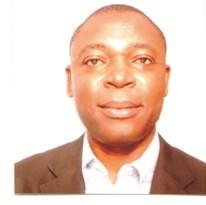
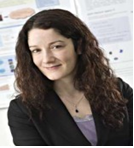

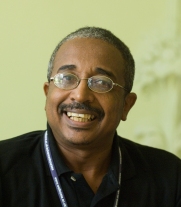
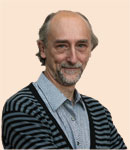
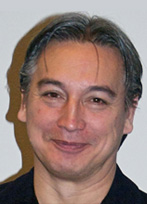
Biographies:
Pr Doumbia Seydou, M.D., Ph.D.
Professor
Seydou is deputy scientific director of the Malaria Research and Training
Center, and professor of epidemiology at the Department of Public Health,
Faculty of Medicine, and University of Bamako, Mali.
Talk Title:
TBA
Biography:
Professor
Doumbia Seydou is a professor of Epidemiology, Department of Public Health,
Faculty of Medicine, University of Bamako, Bamako, Mali, and Responsible for
MsPH training program in Epidemiology, he is also the Deputy Director of
NIH/NIAID-University of Bamako Intramural Research Programs, Malaria Research
and Training, Center, Faculty of Medicine, University of Bamako, Bamako, Mali.
For more than 15 years he has been involved in several aspects of malaria and
other infectious diseases research including leishmaniasis, schistosomiasis,
and HIV/AIDS.
[Top of Page]
Pr Alice Carolyn McHardy
Head of Independent Research Group (W2: eq.
Associate Professor)Member of the Computational Genomics & Epidemiology
Group, Max-Planck Institute Informatics, Saarbrucken, Germany; Center for
Bioinformatics (CBI),Saarland University, Saarbrucken, Germany; The
International Society for Computational Biology (ISCB) and Faculty member,
Computer Science Department, Saarland University, Saarbrucken, Germany.
Talk Title:
TBA
Biography:
Doctor Alice Carolyn McHardy is head of
Independent Research Group and is a member of Computational Genomics &
Epidemiology Group, in Max-Planck Institut for Informatic, in Saarbrucken
Germany. She starts a postdoc in 2004 in Bioinformatics Resource Facility, in
the Center for Biotechnology in Bielefeld University, Germany. In 2007 she ends
her postdoc and become permanent Research Staff Member in Bioinformatics &
Pattern Discovery Group, in IBM T.J. Watson Research Center, Yorktown Heights,
NY in USA. 6 times awarded: in 2001 she obtained the PhD Scholarship
’Graduiertenkolleg Bioinformatics’, in Bielefeld University, Germany; she get
the ISMB Best Poster Award; in 2006 she obtained the IBM Invention Achievement
Award and the IBM Research Division Technical Achievement Group Award; in 2008
she obtained a sponsorship ’Fast Track Program’ (Robert Bosch Foundation) and
finally in 2010 she was selected as participant for 60th Nobel Laureate Meeting
in Landau. Dr Alice McHardy, has also 2 grants: Since 2006, she was invited
talks many times in several institutes and different workshops held in Germany
and USA. She is co-author of more than 27 (10 first authorships) publications
in scientific journals and books, including Nature, Nature Biotechnology,
Nature Methods, PLOS Pathogens, PNAS, Nucleic Acids Research and
Bioinformatics. She also has 1 patent with DEGUSSA AG, IBM and Max-Planck
Society.
[Top of Page]
Dr. Debora Marks
Instructor in Systems Biology on the institution of Harvard
Medical School department of Systems Biology.
Talk Title:
TBA
Biography:
Debbie Marks is a
computational biologist interested in non-coding RNA genes called microRNAs. To
see more about her work go to [http://connects.catalyst.harvard.edu/profiles/profile/person/86062].
[Top
of page]
Pr. Muntaser Inrahim
Associate Professor and Head of Department at the Institute for Endemic Diseases, University of Khartoum.
Talk Title:
TBA
Biography:
Muntaser has had a major interest in the immuno-epidemiology of malaria
in the low-transmission setting, and is expanding this to include
epidemiological studies in a region where malaria is more endemic.
A specific focus of his research is to define ethnic differences in
susceptibility to malaria, at both the immunological and genetic levels,
and to establish the epidemiological infrastructure to dissect the
molecular basis of these differences by genomic association analysis.
[Top
of page]
Dr. Alfonso Valencia
Biologist with formal training in population genetics and biophysics
which he received from the Universidad Complutense de Madrid. He was
awarded his PhD in 1988 at the Universidad Autónoma de Madrid.
Talk Title:
TBA
Biography:
He was a Visiting Scientist at the American Red Cross Laboratory in 1987
and from 1989-1994 was a Postdoctoral Fellow at the laboratory of C.
Sander at the European Molecular Biology Laboratory (EMBL), Heidelberg,
Germany.
In 1994 Alfonso Valencia set up the Protein Design Group at the Centro
Nacional de Biotecnología, Consejo Superior de Investigaciones
Científicas (CSIC) in Madrid where he was appointed as Research
Professor in 2005.
He is a Member of the European Molecular Biology Organisation (EMBO),
Founder and former Vice President of the International Society for
Computational Biology where he has been Chair of the Systems Biology
and/or Text Mining Tracks of the main Computational Biology Annual
Conference (ISMB) since 2003. He was honoured as ISCB-Fellow in 2010.
Alfonso Valencia serves on the Scientific Advisory Board of the European
Molecular Biology Laboratory; the Swiss Institute for Bioinformatics,
Biozentrum, Basel; the INTERPRO database; the Spanish Grant Evaluation
Agency (ANEP); as well as the Steering Committee of the European Science
Foundation Programme on Functional Genomics (2006-2011).
Alfonso Valencia is Co-Executive Editor of Bionformatics, serves on the
Editorial Board of EMBO Journal and EMBO Reports, among others. He is
the Director of the Spanish National Bioinformatics Institute (INB).
[Top
of page]
Dr. Erik Bongcam-Rudloff
Associate Professor, Department of Animal Breeding and Genetics Swedish University of Agricultural Sciences.
Talk Title:
TBA
Biography:
Ph thesis: 1995 Doctor in Medical Sciences (Dr. Med. Sci). Department of
Pathology, Uppsala University, Title of thesis: "Studies on glial
fibrillary acidic protein (GFAP) in human glioma cells in vitro and in
vivo". Post-doc: Post-Doctoral position at the Wenner-Green Institute,
Stockholm University. 1996-1997 Docent (associate professor): 2004
Employment: Associate Professor, Dept. of Animal Breeding and Genetics,
SLU, Uppsala, Sweden and at the Department of Genetics and Pathology,
Uppsala university, Uppsala, Sweden.
[Top
of page]































